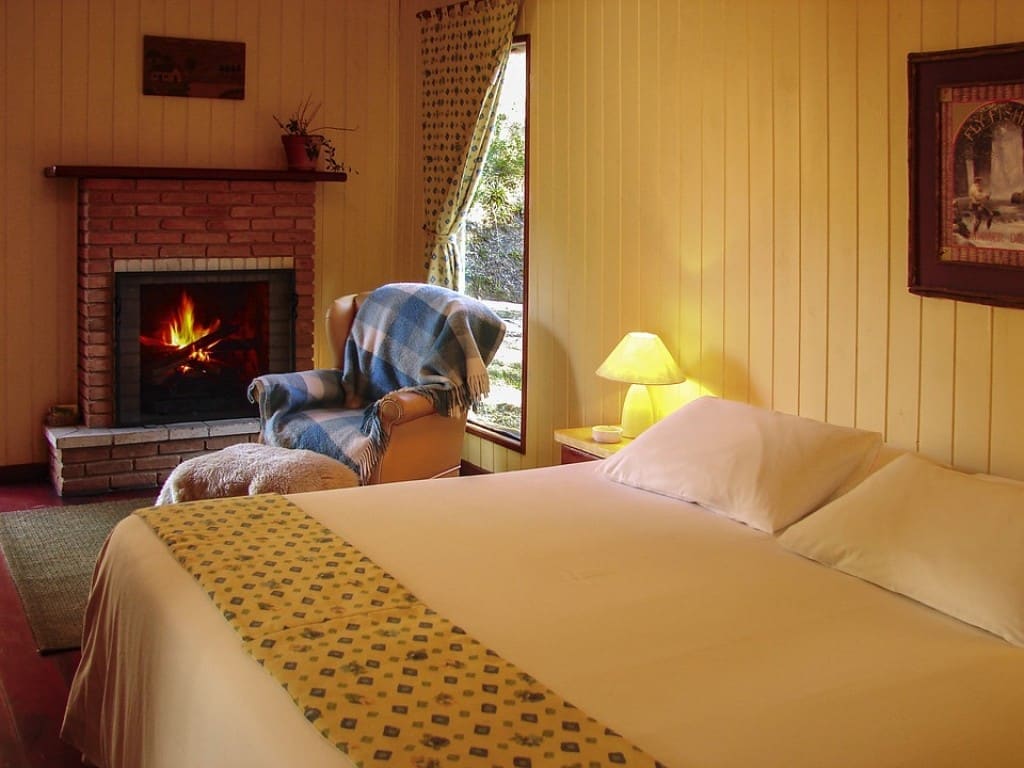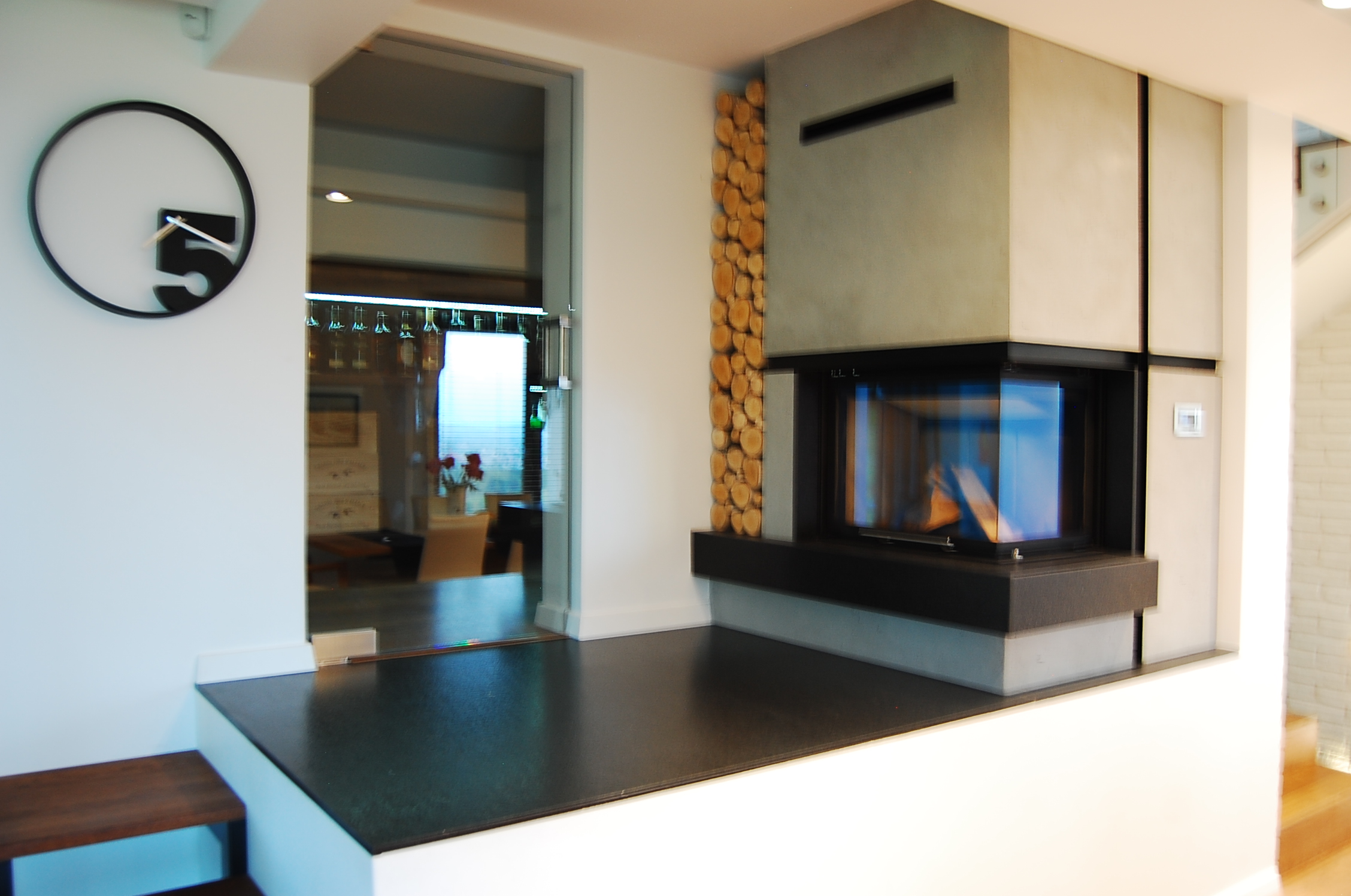Our Blog
A fireplace in a room, where to position it ?
Owing to its design and its aesthetics, a modern fireplace will compliment almost every interior. However, a problem arises only when it comes to small confined spaces, in which putting such a big construction can additionally give an optical illusion of a much smaller space. Thus, when choosing a fireplace for your room, you should think first what would be its ideal location in your interior.
.jpg.w,1024.778.jpg)
Fireplace accessories - in other words - what else do we need for our fireplace?
Anyone who intends to buy their own fireplace has to take into account the fact that the fireplace itself is not everything. Even the purchase of the most technologically advanced and the most expensive model does not replace an array of accessories available, which are indispensable.
Accessories will enable us to make use of all the benefits every fireplace can offer. Moreover, accessories are crucial when it comes to cleaning and functioning of fireplaces.
If you desire that your fireplace accessories should serve you well for many years ahead, settle on high quality products and not on much cheaper substitutes, which are available in DIY stores and which are made mostly of low quality materials and as such they suffice for one heating season only. Changing fireplace accessories every year - after all that is not what you want, do you?
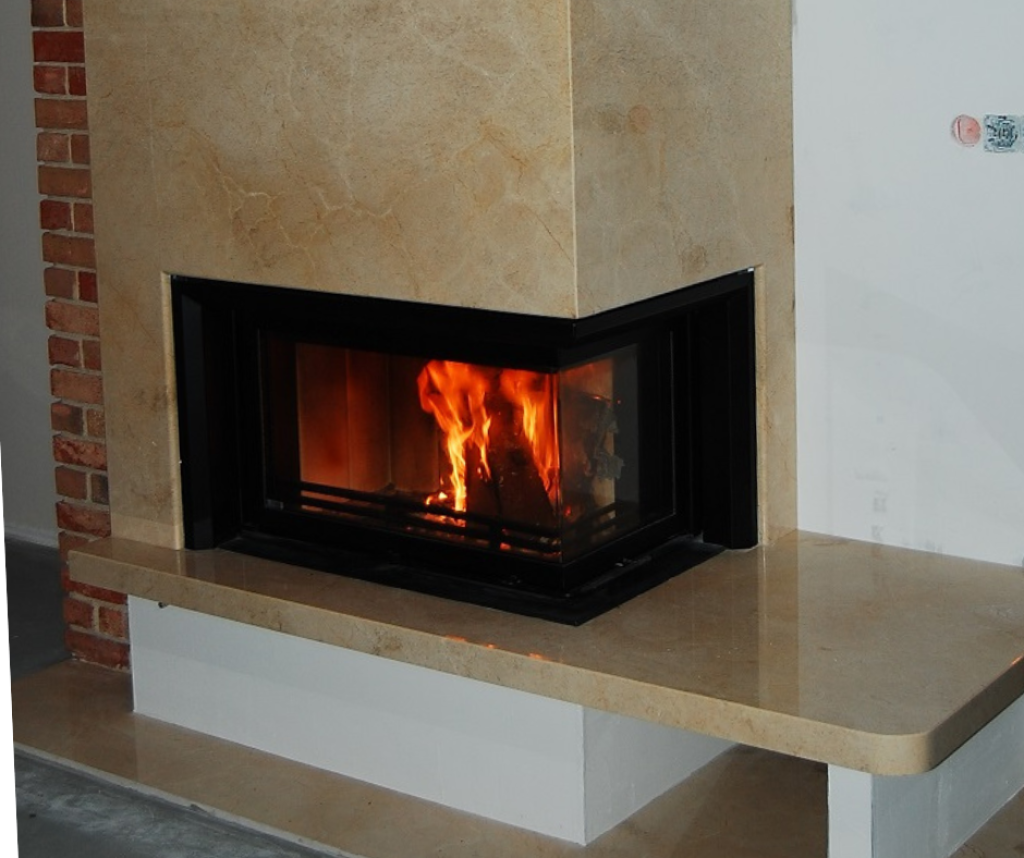
A tile fireplace with a DPD system or a traditional tile fireplace?
A tile fireplace is a term which has two different meanings. However, customers often use this name not distinguishing between these two terms. Having a fireplace, the surround of which is made of tiles, they boast to their friends and acquaintances about having a tile fireplace, which is not entirely true. On the other hand, tiles can perform the same function as they used to in the case of old-fashion, granny's stove, in which tiles acted as a heat accumulator and produced heat long after the fire was put out. Which is a better option to choose from?
When choosing a tile fireplace, you may consider two options: either a tile fireplace with a modern heating system DPD or a traditional tile fireplace. Each solution has both its own advantages and disadvantages. All we need to do is to decide which alternative to opt for.
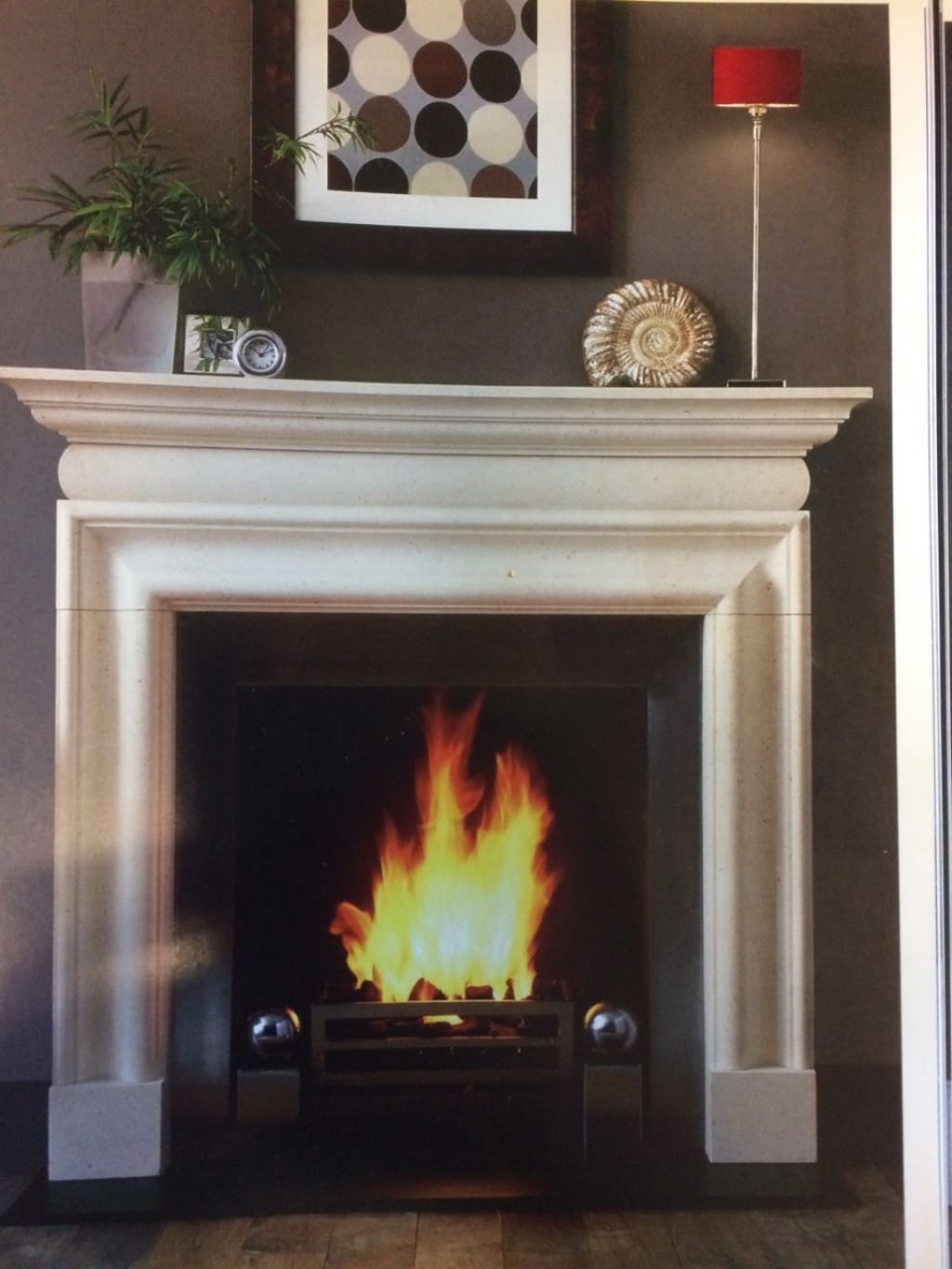
Fireplace installation – the most common mistakes
A fireplace is a cheap and a reliable source of heat. What’s more, a fireplace is an effective solution, which substantially lowers the costs of electrical energy used to heat our homes. Its aesthetic values as well as its abundant design inspiration are undeniable. However, a fireplace can malfunction at times.
Find for yourself what mistakes to avoid to get a properly functioning fireplace heating.
1. Faulty air circulation
Fireplace structure should take into account a proper air circulation between rooms. This can be achieved either through undercutting a door frame or installing bathroom door air vents.
2. Improper fireplace insert
The choice of an insert has an effect on our fireplace heating capacity, in other words if our fireplace can heat a room or a house according to your needs. Improperly selected heating capacity might not be sufficient to heat even one room, in which case a fireplace will perform only a decorative function.
3. Lack of ventilation grills
The installation of ventilation grills on top of a fireplace hood is essential. They are to prevent the accumulation of hot air under the ceiling thus protecting wall plasters and a house foundation. We must also remember that ventilation grills should not direct the airflow directly at people.
4. Improper fireplace location
Many people who dream about having their own fireplace forget that a fireplace does not work very well in very small spaces. The process of heat distribution in a small room is impeded. If you opt for a fireplace in a wooden house, you have to remember about the installation of additional safety devices.
5. Lack of fireplace insulation
Whilst installing a fireplace, you have to remember about protecting it with a thermal insulation material, otherwise a fireplace surround heats up too much and starts cracking. A thermal insulation made of mineral wool or a layer of aluminium will prevent this from happening.
6. Improper connection of a fireplace with a flue pipe
Dishonest fireplace installers frequently connect pipes to a chimney flue by force.
It is extremely dangerous because a tee connector in high temperatures increases its diameter and starts cracking.
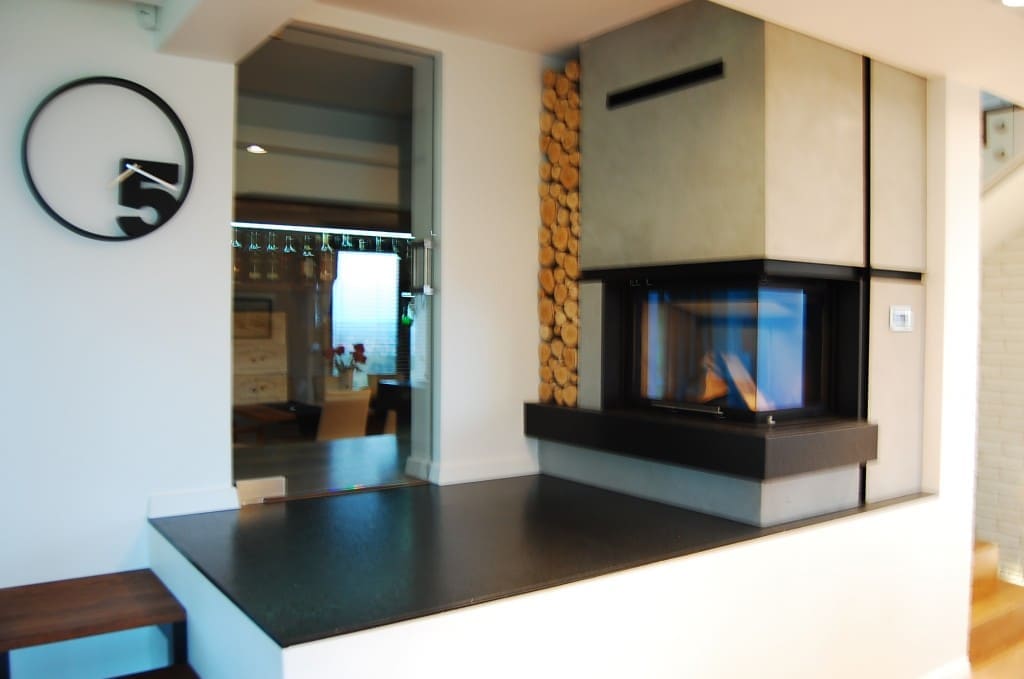
Quartz conglomerate – its application
Quartz conglomerate also known as quartz-granite is composed of natural quartz (95%), polymer resins and other ingredients (5%). It differs substantially from other natural stones like marble or granite in terms of its physical and chemical properties.
Quartz conglomerate - its properties
Quartz-granite is a mixture of natural quartz and elastic resin with silver ions added, owing to which the material acquires antibacterial properties. Additionally, the risk of mould and mildew is reduced to the minimum.
Due to its antibacterial properties, quart-granite is extensively used in the production of sanitary fittings both for private and public facilities, which are particularly at risk of being infected. Washbasins, stairs or kitchen worktops made of quartz-granite are ideal for guesthouses, hotels, swimming pols or hospitals.
The production of quart-granite is quite complex. Before reaching its final form, quart-granite undergoes mechanical treatment during which elastic resin and other chemical ingredients are added thus increasing its durability. Quart-granite slabs are pressed with ultra high pressurised water and at a very high temperature, owing to which, we obtain a product, which is resistant to any kind of chemicals and which is safe when used.
Quartz-granite is most frequently sold in the form of 2 cm and 3 cm thick slabs. Their dimensions can differ depending on the producer.
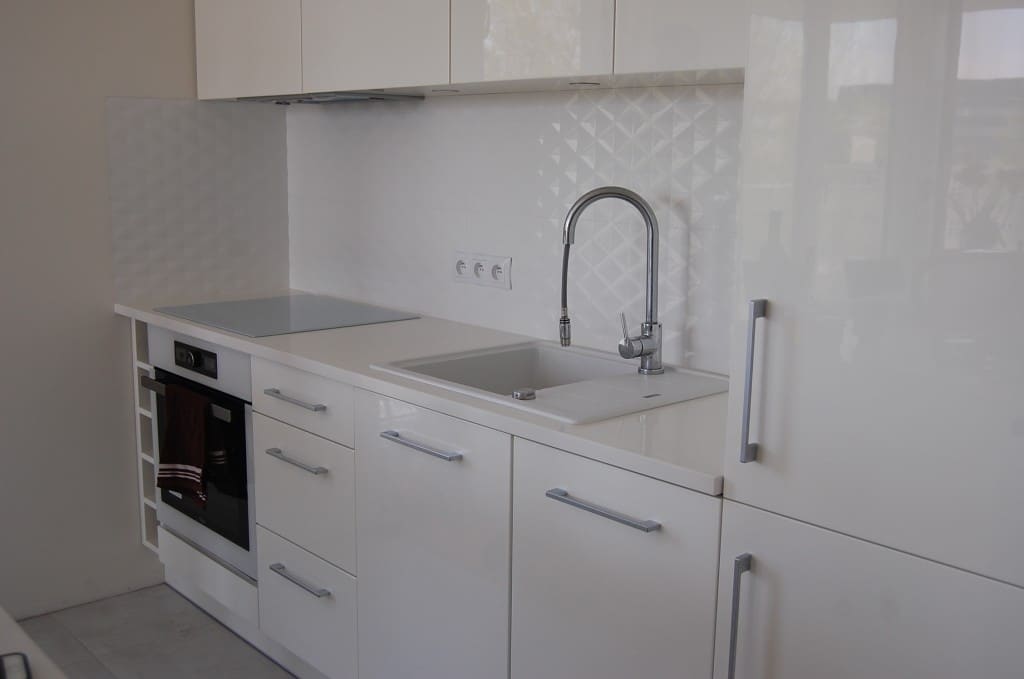
Travertine kitchen worktop. Is it worth it?
Travertine, a decorative wall coating plaster is most frequently found in a white colour, yet, the existing impurities make this stone look yellowish or brownish. However, is travertine a suitable material for producing worktops? Travertine for kitchen worktops is a perfect alternative to marble or granite. Due to its classic and original appearance and to its high resistance, travertine has become a popular finishing material for kitchens and bathrooms .
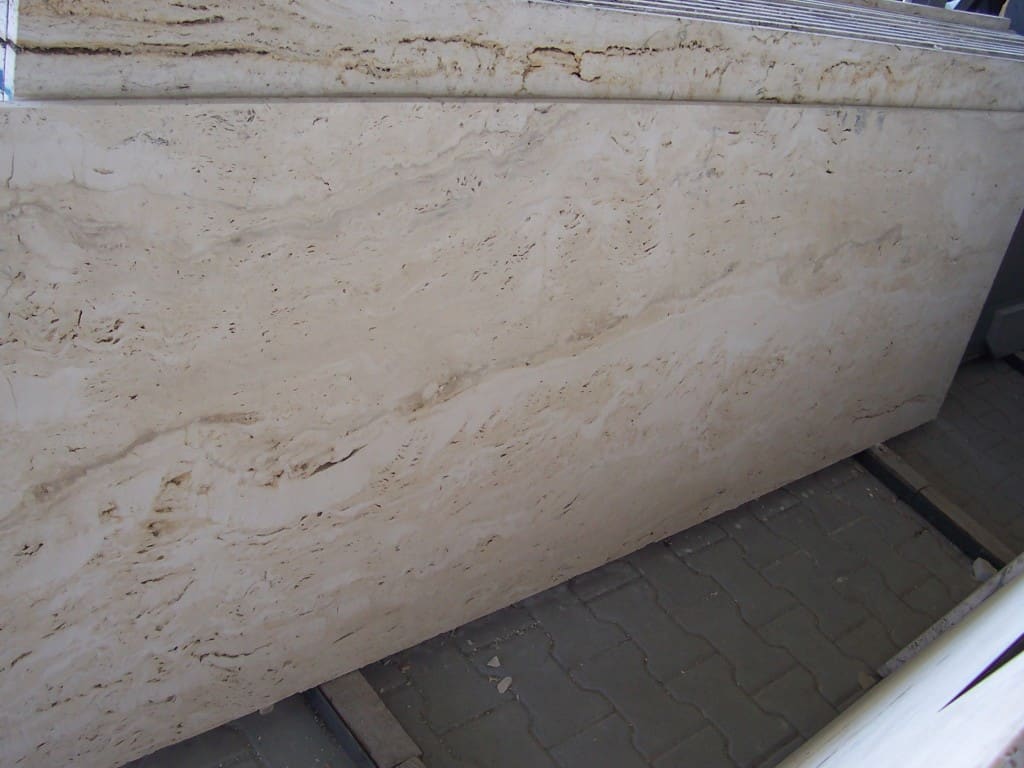
How to construct a fireplace surround?
In western European countries, fireplaces with water jacket inserts are market leaders.
They are much in demand, as they do not only add a pinch of elegance to every interior but they also symbolise luxury. A fireplace surround is not difficult to be made. Quite the opposite, construction experts claim that anybody can produce one by themselves because it usually consists of three elements: a supporting structure, a casing and a hood. How to make a fireplace in a living room so that all the family can take delight in enjoyable moments spent together.
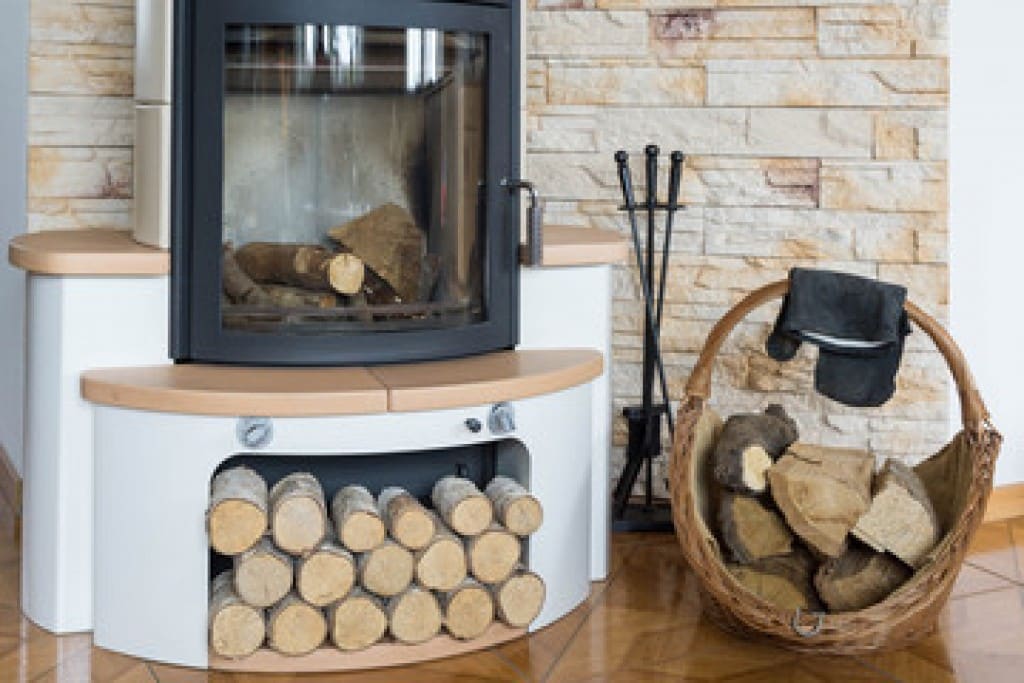
How much warmth does a bio-fireplace emit?
Both in western European countries and in Poland, a bio-fireplace is considered mainly as a decorative element. Little does one know that bio-fireplaces can be used to heat interiors as well. Undeniably, they perform a heating function, which is worth remembering when taking a decision to install a fireplace at home.
A modern bio-fireplace is not only a nice object. When it gets colder outside and days become shorter and shorter, fireplaces might be used effectively to heat a flat.
